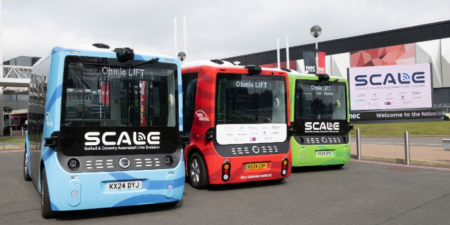Tata Elxsi, a global design and technology services company and a leading developer of automotive electronics and software, has announced the licensing of its advanced autonomous vehicle middleware platform to one of the world’s top five automotive OEMs for their driverless car research and development.
Based in Bangalore, India, Tata Elxsi has developed the Autonomai platform that provides car makers and Tier 1 automotive suppliers with a comprehensive and modular system covering perception, GNC (guidance, navigation and control), and drive-by-wire systems, to quickly build, test, and deploy autonomous vehicles.
The platform supports sensor fusion with a variety of sensors from cameras to radar and lidar, and uses sophisticated artificial intelligence (AI) and deep learning-based algorithms to deliver the complex use-case scenarios expected of driverless cars. Autonomai also allows rapid region-specific adaptation through its pre-integrated validation datasets and AI and deep learning capabilities.
Autonomai’s perception system uses multi-sensor information to perceive the environment by detecting, identifying and classifying the objects around the vehicle. Specific routines or algorithms that detect traffic signs, road edges, lanes, type of objects such as vehicles and pedestrians are part of the perception system. Ego vehicle’s state is used for refining the detections.
The GNC system then makes decisions for planning and controlling the autonomous vehicle based on the information received from the perception system. The path planner subscribes to the traffic, lane and reference-route information to generate distance-based path using path search algorithms. The motion planner generates velocity, position, and heading profiles, and the vehicle control system then provides corresponding control actions to the drive-by-wire system.
“We are delighted with this latest win for Autonomai by one of the world’s top five car OEMs,” said Nitin Pai, senior vice president of marketing at Tata Elxsi. “Car makers will need to ensure that self-driving cars are able to communicate with each other through technologies such as V2X (vehicle-to-everything), adapt to different driving conditions, and receive real-time maps and over-the-air software updates.
“As importantly, OEMs need to transform the current HMI to one that leverages AI, multi-modal interfaces and sensors to ensure passengers are not only safe, but feel safe too. The value of Autonomai is further enhanced by our world-class automotive software integration and validation capabilities, our portfolio of complementary next-gen solutions, including V2X, e-cockpit and automated validation, and an award-winning HMI design team. This makes us a truly compelling partner for OEMs and suppliers in driverless car development.”




